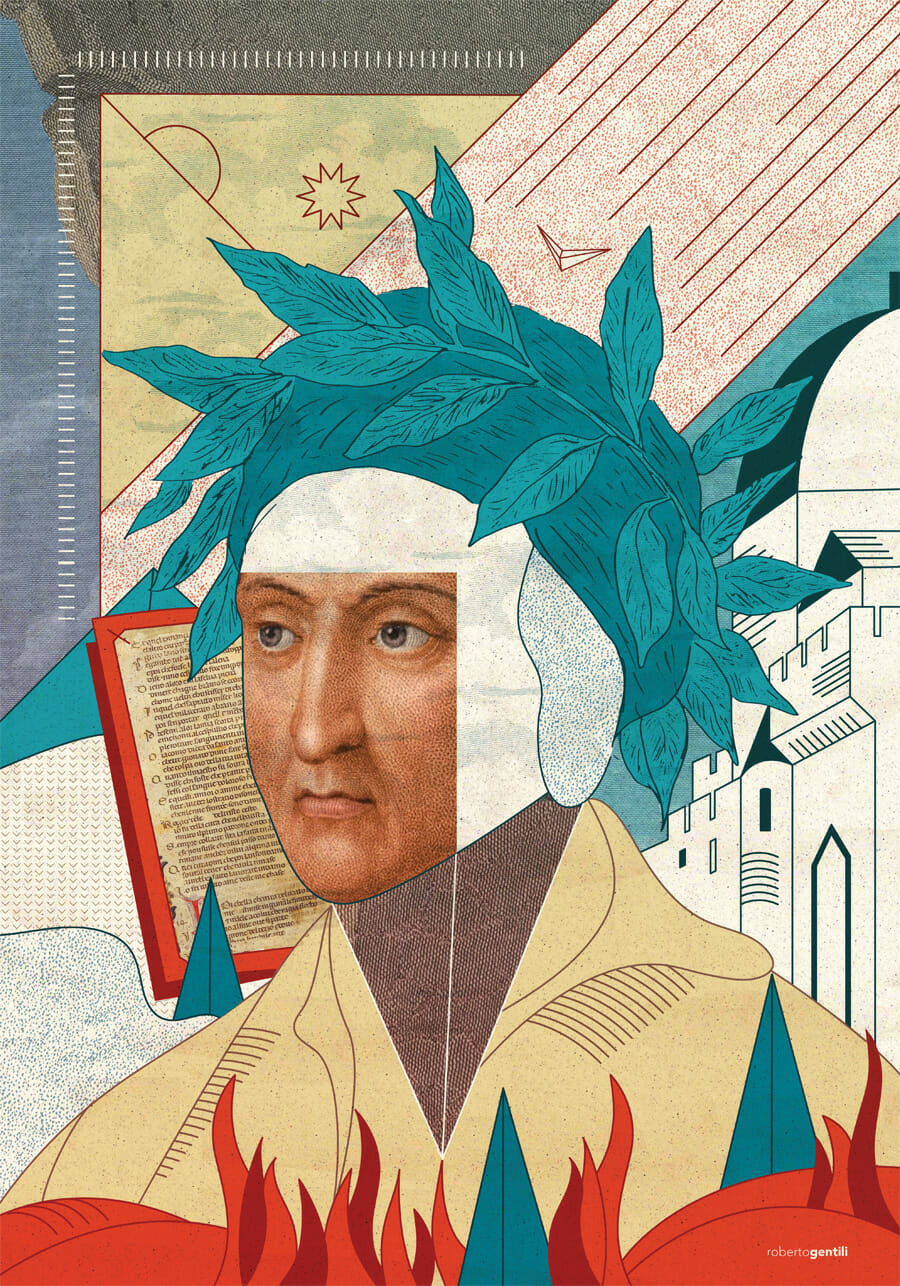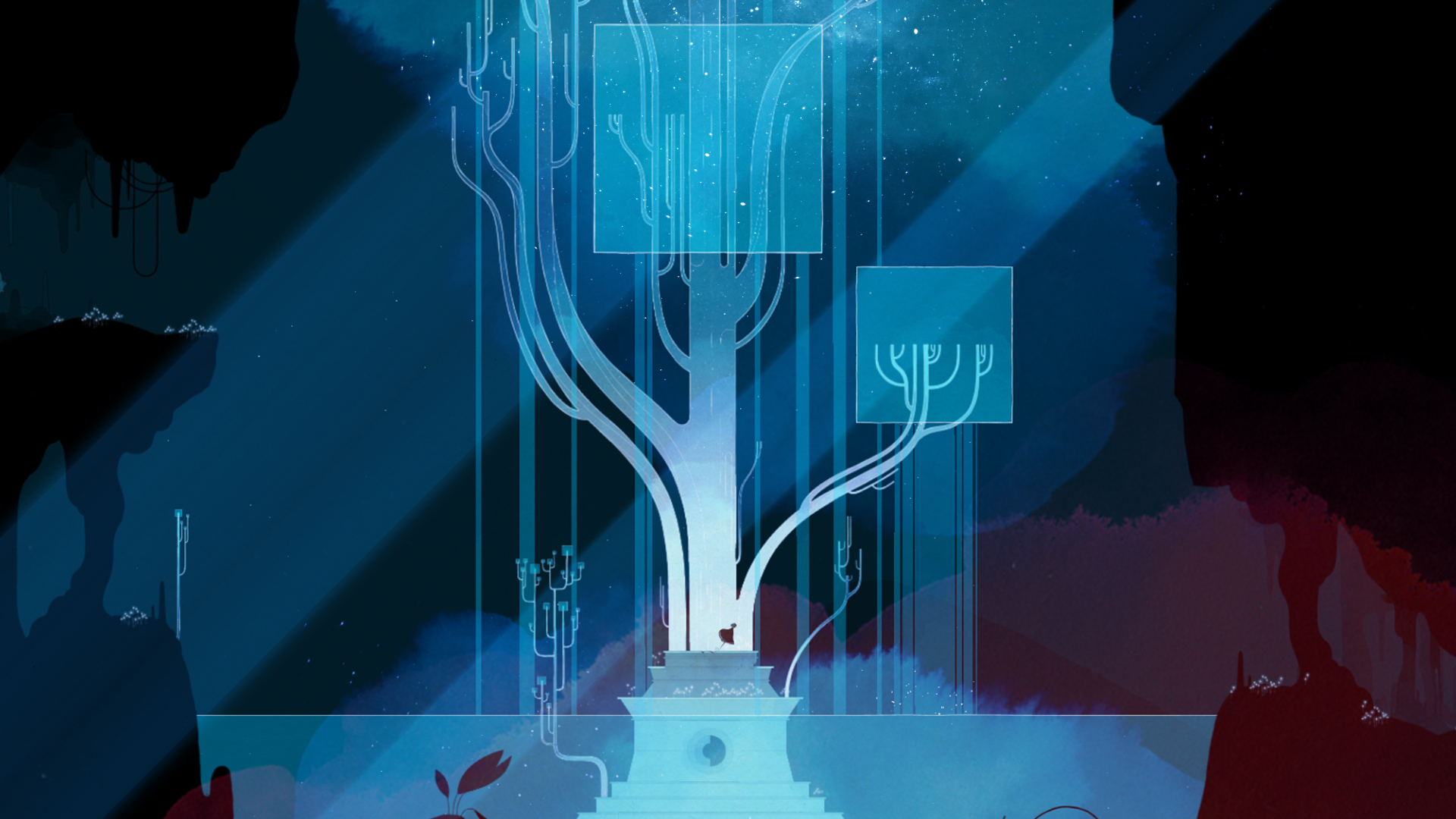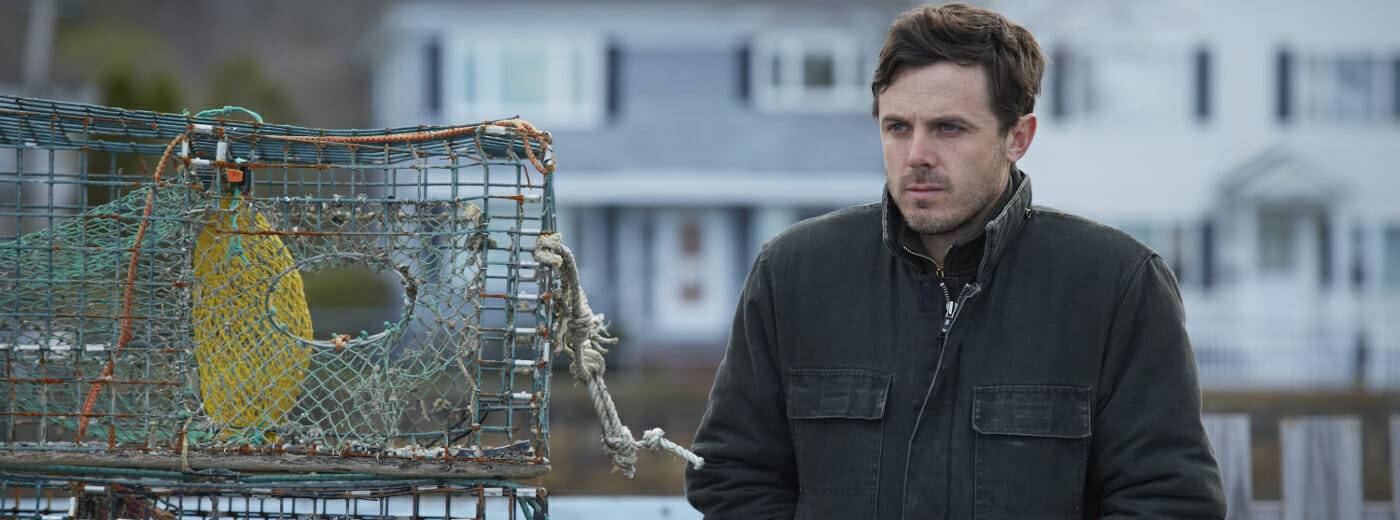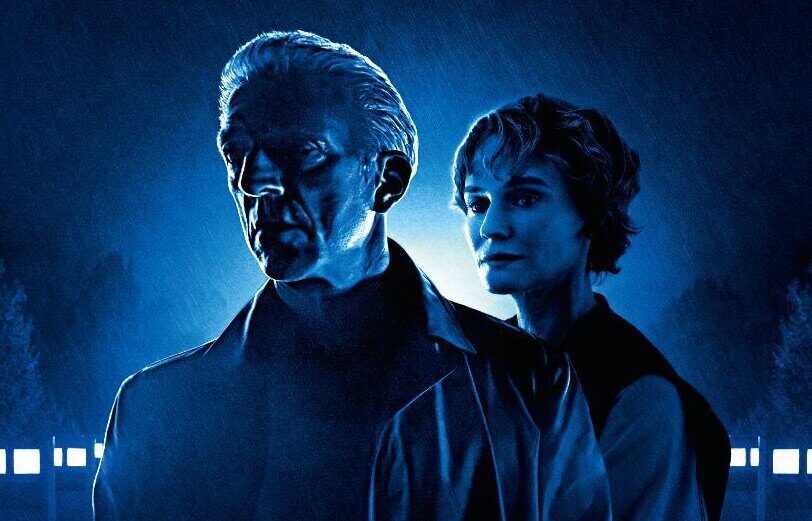
By
David Cronenberg was more heated and polemical than ever during the 77th Cannes Film Festival conference for his film The Shrouds, which is in competition for the Palme d’Or.
The Shrouds, in a world where, through Black Mirror-style technology, people can watch their loved ones decompose inside their coffins, is the film through which Cronenberg mourns the death of his wife Carolyn. The Shrouds is precisely the film with which Cronenberg (despite having directed Crimes of the Future in 2022) returns to directing after years of silence, on a break from film-making due to trauma.
Blending death and life in film-making
Is death, therefore, Cronenberg’s inspiration for this movie? Far from it.
“Where the idea comes from is life itself,” he says, “Anybody who lives even a few years will experience the loss of a pet, an animal, a friend. So, it just comes from life itself. Of course, it’s well known that in this movie, I was discussing the death of my wife, whom I’d been with for 43 years, and I stopped film-making for quite a while after that – five or six years. And then I felt the impulse to tell a story about it; not exactly realistic, not really autobiographic, but somehow blending my experience of her death and my loss.”
Vincent Cassel, who plays the protagonist of The Shrouds, is the director’s alter ego on the big screen. “I was surprised when David asked me to act as a character who would be inspired by himself. Even if it’s a cinema version of David Cronenberg, I didn’t have the feeling that I was trying to become him. I’d never talked so much in a film before. That was, therefore, my focus, and quite quickly, as soon as I got dressed and started to see my face reflected, it was quite obvious that there was something that had happened.“
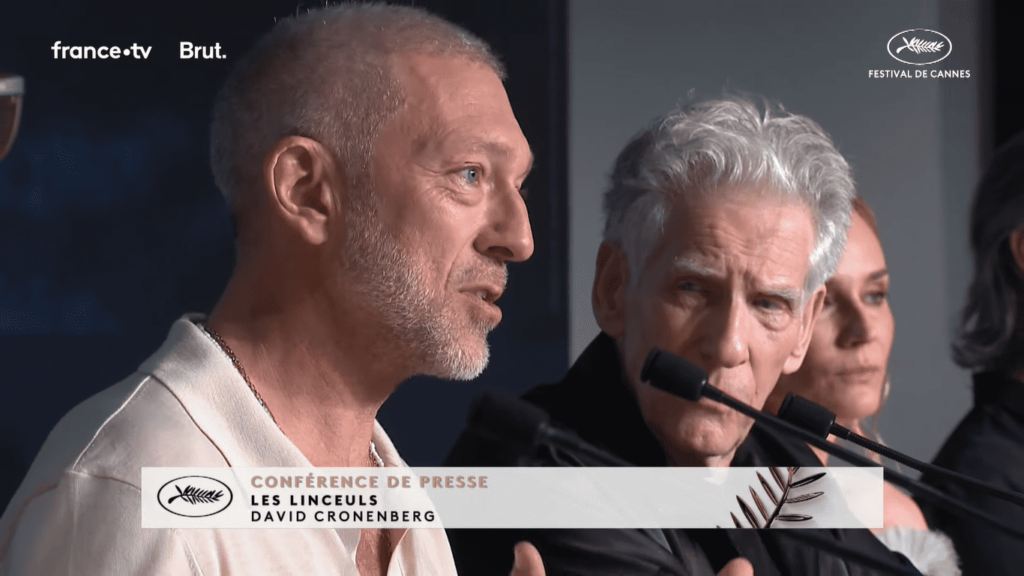
Death and Technology
David Cronenberg sees technology positively. He spoke about the use of CGI in cinema and artificial intelligence. The latter is a rather controversial topic within the artistic world, and according to Cronenberg himself – although he views the tool favorably – he admits that if AI were truly powerful, both actors and directors would no longer exist, and not even writers, but just ‘prompters.’
As for death, however, “Technology has always been a tool to remember the departed… That has been done since the beginning of human civilization. I mean, depending on the technology, Egypt’s pyramids are exactly that. Using technology that was available at the time to build these amazing structures as a memorial, a way of remembering, and a way of believing in a life after death. This is not new: humans have been doing this for thousands and thousands of years and, as technology changed, the idea of using the newest technology to do that kind of thing.”
Disturbingly, he adds: “The technology exists right now to create shrouds just as I have invented them in the script. It could be done if anybody wanted to do it.“
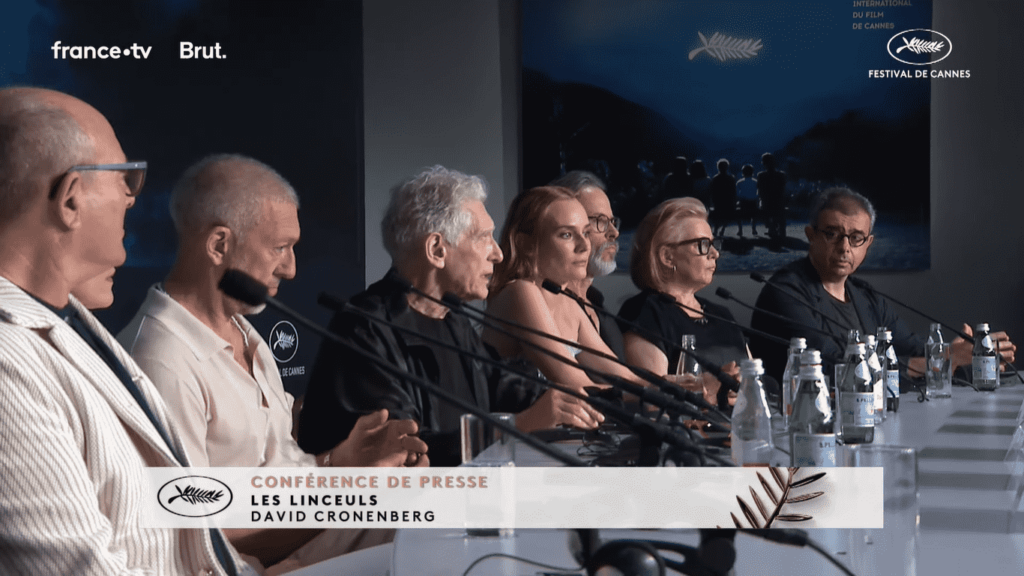
Death and Hope
Obviously, mourning and pain affect every human being, even when dealing with someone else’s pain, in this specific case, Cronenberg’s. “I hadn’t worked with David,” says Diane Kruger, interpreter of Vincent Cassel’s deceased wife, “so we initially met and had a long chat about the script. When I got the script, I did not know that it was based on his personal life, and that shocked me a little bit. I took that very hard, but in a good way; I felt humbled by that.”
“Something that deals with death and grief and what it means for a relationship of that length to part in death did make me, of course, think about my own mortality. […] I’ve had people in my family that have passed. Still, what it means for a man and a woman to part physically and to let go of the body, especially during the duration of an illness, where you know the person eventually is going to pass. You kind of have this long period of saying goodbye and saying hopefully everything that you wanted to say to that person… what Vincent’s character says in the film is like ‘I had this urge to see her in the coffin, I had this urge to jump in with her, the thought of her being alone in death struck me so much’. It made me very emotional.”
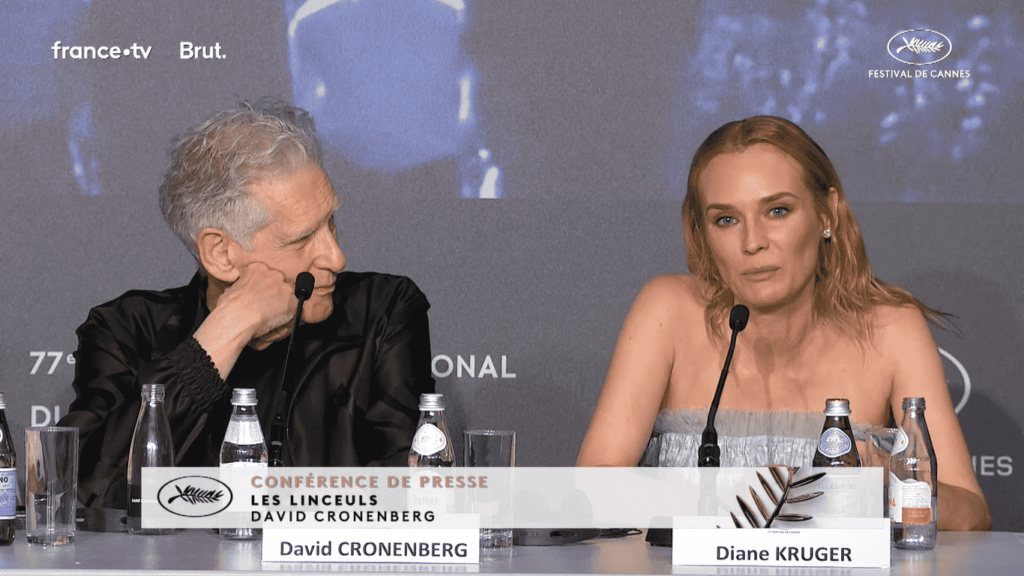
Hope at the end of the journey
Cassel also adds his thoughts on the matter. “It feels like everybody has their own way of coping with grief and the loss of somebody. It seems crazy to invent a machine so you can cope with the fact that somebody will disappear forever, and you want to accompany that person until the last minute. That seems a crazy idea, but that’s what we do when we can’t cope with reality. At the end of the day, even though it’s a very poetic love-story nightmare, I think there is hope in it.”
Hope, then. A positive note at the end of a journey through pain. Because mourning can be a cage from which it might seem terrible to escape, and so it was for Cronenberg and Karsh, the protagonist of The Shrouds. But if there is hope, then life can perhaps still have meaning.






